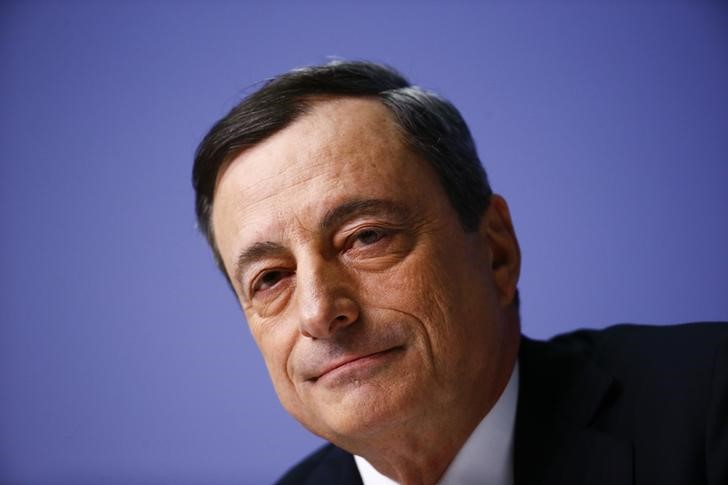By Geoffrey Smith
Investing.com -- Italian bond prices rose in early trading in Europe on Friday, after President Sergio Mattarella rejected the resignation of Prime Minister Mario Draghi.
By 02:30 AM ET (0630 GMT), the yield on the benchmark Italian 10-Year bond was back down at 3.34%, having risen as high as 3.53% on Thursday when Draghi decided to offer his resignation after the 5 Stars Movement (M5S) refused to back a vote of confidence in his government. Yields move inversely to prices.
Mattarella asked Draghi instead to address parliament next week, buying time for the country's politicians to come to some sort of compromise.
FTSE MIB stock futures, meanwhile, were likewise up 0.2%, after falling over 3% on Thursday, while the euro rose back above parity with the dollar to trade at $1.0014. It had fallen below $1 for the first time in 20 years on Draghi's reaction to the vote.
Mattarella's action ensures that the outcome most feared by financial markets - Draghi's departure and early elections - won't happen in the immediate future.
However, the divisions that led to the defection of M5S are real and deep, and it is unclear that Draghi - who has no popular mandate of his own - will carry on. M5S is the largest party in the Senate and the second-largest in the Chamber of Deputies, and its absence undermines Draghi's claim to be leading a government of national unity. At the same time, pressure for early elections is also coming from the center-right parties backing Draghi, given that opinion polls suggest they would strengthen their positions.
After an early bounce, the rally appeared to run out of steam quickly, leaving the spread between Italy's 10-year yield and its German equivalent still over 220 basis points.
ING analysts Francesco Pesole and Antoine Bouvet pointed out in a note on Thursday that the spread - a rough proxy of Eurozone breakup risk - is now at a level where the European Central Bank has tended to intervene verbally. The ECB is due to meet next week and markets have been hoping for more detail on what the bank calls its 'anti-fragmentation tool', which the bank hopes will keep yield spreads within acceptable level as it starts to raise interest rates.
"Monetary policy transmission may become impaired, but the ECB should only intervene in case of "unwarranted" tightening, not political uncertainty," Pictet Asset Management economist Frederik Ducrozet said via Twitter.
